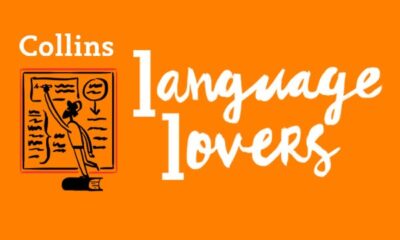We’re very pleased to introduce our first fiction author to the word-lover interview series; Andrew has published over 20 books in the crime and historical genre. His new book, The Silent Boy, is published on the 28th of August.
You can read more about Andrew’s work at www.andrew-taylor.co.uk and follow him on Twitter at @andrewjrtaylor.
If you like this interview, do check out more in the series at the bottom of the page.
Favourite language:
I’d have to be a lunatic not to choose English, given the richness of its vocabulary, its multinational past and future, its flexibility and the simple fact it’s the only language I’m truly comfortable with.
Favourite word:
This afternoon I shall choose Amazeballs. English keeps on growing with extraordinary fecundity. Amazeballs both describes this quality and exemplifies it.
Favourite non-mother tongue word:
Schadenfreude. I’m not sure why I like this word, which describes one of the least morally defensible pleasures of life. Something to do with the sound of it, perhaps – enigmatic, sinister, philosophical and oddly rhythmic, all at the same time. I liked it long before I knew what it meant, let alone how to pronounce it.
If you were stranded on a desert island with three books, what would they be?
I would need a good dictionary of English, of course. Also, to while away those interminably long afternoons on the beach, I’d like a very long book in a language I don’t know very well: Proust in French would do. (I may come to regret this choice.) Finally I’d like a book full of blank pages so I could write deathless prose in the cool of the mornings.
When do you remember realising you loved words? Any early wordy memories?
I can remember the blazing excitement I felt when I first succeeded in reading a book by myself.
What do you wish for other people to experience, enjoy or get out of words?
The answer to that depends on both the people and the words….
What is your most hated word or grammar mistake?
It’s a toss-up between misuse of the apostrophe and the use of ‘of’ in place of ‘have’ (‘must of’ etc.). But my hatred is both half-hearted and futile, because I know that the English language develops according to its own sweet logic.
What is your favourite obscure word?
Parergon. Or possibly torpid.
What is your least favourite word?
Academician. (This is one among many)
– – –
Many thanks to Andrew for answering our questions, and for reminding us of the joys of the word ‘torpid’. What would you take to a desert island? We should point out that we’ll provide food and water, so Andrew won’t have to survive on words alone!




collins_dictionary_official
The home of living language. #wotd #wordlovers #collinsdictionary
Read our word of the week definitions and blog posts: